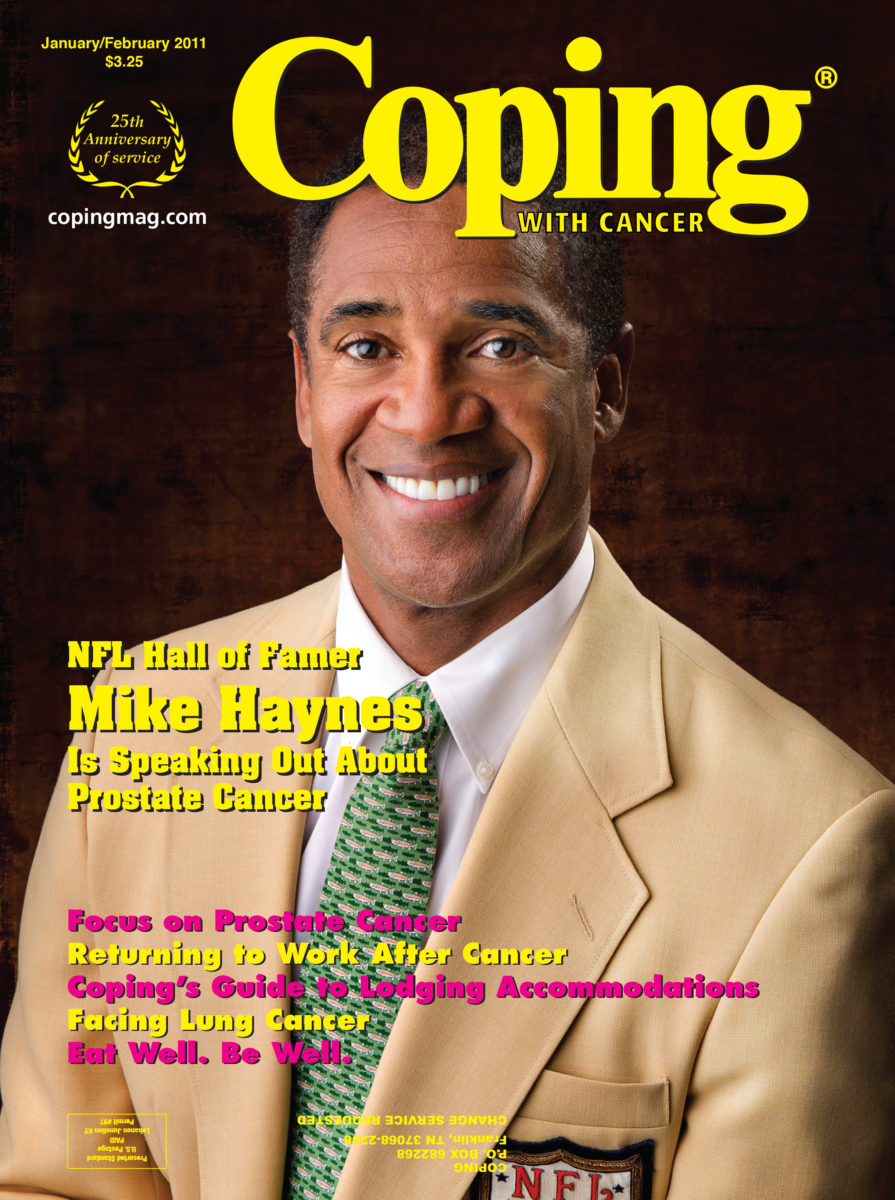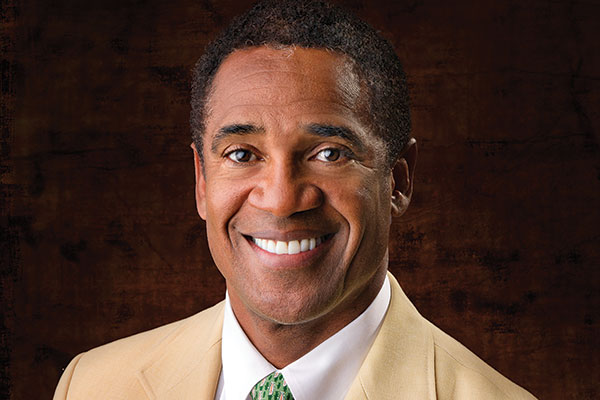NFL Hall of Famer Mike Haynes Is Speaking Out About Prostate Cancer
by Laura Shipp
When NFL Hall of Fame cornerback Mike Haynes agreed to take part in an event to raise awareness for prostate cancer, he thought he would be helping other people. What he didn’t realize was the person he’d end up helping the most was himself.
It was the summer of 2008, and Mike, who played for the New England Patriots from 1976-82 and the Los Angeles Raiders from 1983-89, was at the Pro Football Hall of Fame in Canton, OH. That day, the National Football League Player Care Foundation and the American Urological Association Foundation were hosting a free prostate cancer screening event for retired players, and they had asked Mike to take part. Having recently had a physical, Mike didn’t feel that he needed to undergo another screening, but he went anyway.
“These ladies, who I now call angels, encouraged me to take this simple blood test,” Mike tells Coping® magazine. “They said that my involvement might encourage some other guys to do it. So I did.”
That simple blood test, a prostate-specific antigen (PSA) test, indicated that Mike’s PSA level was rising, a possible sign of prostate cancer – something that Mike was unaware of at the time. “I’m a little embarrassed about this,” he admits, “but when the doctor asked me what my baseline was, I didn’t know what he was talking about. To be honest with you, when he said PSA, I didn’t know what he was talking about there either. He gave me some statistics about the number of men that are diagnosed with prostate cancer every year and the higher number for African American men. And being an African American man, I was definitely more at risk, but I didn’t know anything about it.”
Following a biopsy, Mike was diagnosed with early-stage prostate cancer. “That news was a huge shock,” he says. “When the doctor said that I did in fact have cancer, I don’t think I heard much for the next few minutes. Thankfully, my wife was there taking down notes and asking him questions.”
That’s the only way we’re going to make a difference, if we talk about it.
After extensive research, Mike opted for a nerve-sparing robotic-assisted prostatectomy. Because his cancer was detected in the early stages, the surgery was successful, and the side effects, he says, have been minimal. “I did have a little problem with incontinence,” he says, “but it has gotten better and better over the months. I’m expecting that it will continue to get better, but if I had to live with the way it is right now for the rest of my life, I’d be OK with that.”
Doctors have given Mike a clean bill of health, and now he is on a mission to raise awareness about the disease. “Prostate cancer didn’t just appear in the year that I got it,” he says. “It’s been around for a while. Unfortunately, in the past they weren’t having the type of success with treatment that they are having now. Today, many men can still have a normal sex life after prostate cancer, but that wasn’t the case back then. In those days, if you said you have a urological problem, you were almost admitting that you didn’t have a sex life. If you’re a young man, that’s really not something you want to talk about. And if you’re an older man, you probably don’t want to talk about it either.”
Mike, who is now a spokesperson for the AUA Foundation (the group that conducted the free screening that led to his diagnosis), says that his goal is to get people talking. “I find it unusual that this is a disease that is going to affect so many men, and most men don’t know anything about it, don’t know what the prostate is or what it does,” he says. “My goal is to change that, to normalize discussion about it. Because that’s the only way we’re going to make a difference, if we talk about it.”
As a retired player and prostate cancer survivor, Mike hopes that the NFL will soon do for prostate cancer in September what it does for breast cancer in October. “Let’s elevate this to a level of importance and help other men catch it early,” he says, “because that is when we have the greatest opportunities to be winners in this game.”

Mike Haynes is a spokesperson for Know Your Stats About Prostate Cancer,® a campaign sponsored by the AUA Foundation and the NFL that encourages men to talk to their doctors about prostate cancer. To learn more, visit knowyourstats.org.
This article was published in Coping® with Cancer magazine, January/February 2011.


